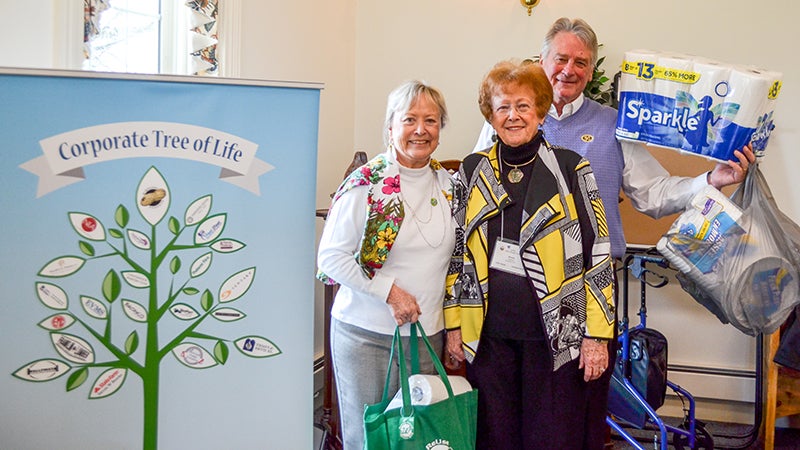Clinic visits Woman’s Club
Published 10:46 pm Tuesday, March 19, 2019

- Junto Woman’s Club of Suffolk members Janice Morris and Bobbie Chapman alongside Western Tidewater Free Clinic Executive Director Chet Hart at the club’s March meeting held on Monday.
The Junto Woman’s Club of Suffolk was joined this week by guest speaker Chet Hart, executive director of the Western Tidewater Free Clinic, at the club’s March meeting held Monday at St. John’s Parish Hall on King’s Highway. This month’s focus for the club is on health and public issues.
Members thanked Hart for his visit by donating an assortment of supplies for the clinic. Office supplies, snacks for volunteers, cleaning products and other items from the clinic’s wish list were collected. This was in addition to the club’s annual donation, which was $200 given in January, said Lorraine McGovern of the Junto Woman’s Club.
McGovern said that the clinic plays a vital role in meeting the needs of Suffolk’s ever-growing community.
“Suffolk is a community that is growing and the needs are expanding,” she said. “It’s important for everyone to know what those needs are.”
Western Tidewater Free Clinic Inc. was founded in 2007 to meet the region’s growing need to provide quality services to those that need it the most. It started in a small rental house on Godwin Boulevard, serving a 1,400-square mile Western Tidewater service area in those early days, according to wtfreeclinic.org.
Today its service area spans 2,200 square miles, including Suffolk, Franklin and Isle of Wight, Southampton, Surry and Sussex counties. The mission of the clinic and its volunteers is to provide non-emergency health care to Western Tidewater residents who otherwise can’t afford it.
Approximately 200 clinic volunteers are currently serving uninsured, underinsured and underserved residents in the clinic’s service area, Hart said. This includes medical, dental, vision, women’s health and mental health services, as well as pharmacy consultation.
Hart said that the clinic distributed $8.6 million in free medications in 2018 — based on average retail value — and $9.2 million in free medications in 2017. Last year amounted to more than 37,000 prescriptions for 30-day medication supplies.
There were 1,627 individual patients at the clinic last year that generated 19,422 unique visits, Hart said, and there were 1,647 patients spanning 19,723 visits in 2017.
The clinic also began to participate in the Medicaid program as of Jan. 1, when the state’s guideline changes went into effect. This assisted and ensured continuity of care for about 30 percent of the clinic patients that qualified for Medicaid, Hart said.
Forty percent or more of clinic patients have been treated by these volunteers and services for three or more years, and Hart said they’re trying to help more and more daily.
“We strive to give our patients better help and treat with them dignity and respect,” he said, “and most of all we give them hope.”






